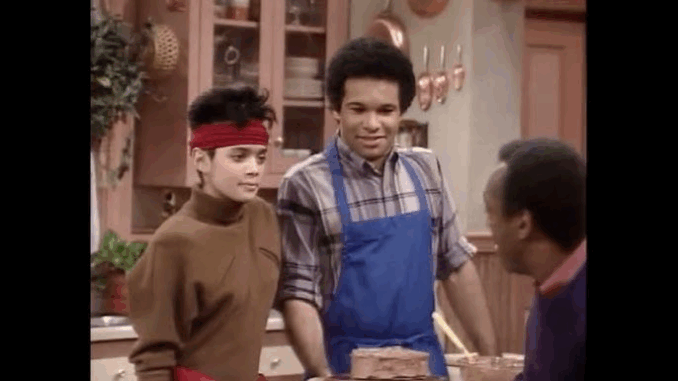
At first glance, The Cosby Show seemed like a warm, humorous portrayal of an upper-middle-class Black family navigating everyday life. But behind the charming banter, family lessons, and sitcom laughs, the show subtly but powerfully engaged with some of the most pressing social issues of its time. While never preachy or overtly political, The Cosby Show used its platform to nudge the national conversation — gently, but persistently — in the direction of change.
A Quiet Revolution in Representation
The most visible — and perhaps most radical — statement the show made was its very premise: a highly educated, professionally successful Black family living in a brownstone in Brooklyn. In an era where African American characters were often relegated to roles rooted in poverty, dysfunction, or crime, the Huxtables shattered that mold.
By portraying Heathcliff Huxtable as an obstetrician and Clair Huxtable as a confident attorney, the show normalized Black excellence and challenged viewers to rethink the limits of what Black characters — and Black families — could be on screen.
This wasn’t just symbolic. It was a conscious decision by Bill Cosby and the show’s writers to combat negative media portrayals and offer a more nuanced, aspirational image of Black America. Representation itself became a form of quiet activism.
Addressing Race Without Centering It
While The Cosby Show was never framed as a “race show,” it did not shy away from cultural specificity. It wove African American heritage into its stories with pride and subtlety: jazz and blues music, historically Black colleges and universities (HBCUs), African art on the walls, and cameos from cultural icons like Lena Horne and Stevie Wonder.
Episodes occasionally tackled race more directly — such as when the Huxtables dealt with discriminatory assumptions, or when characters explored their African roots — but the power lay in the show’s ability to normalize Black success without constantly needing to justify or explain it. In doing so, The Cosby Show expanded what mainstream America considered “normal.”
Championing Education and Discipline
One of the show’s consistent themes was the importance of education. The Huxtable children were held to high academic and behavioral standards. The show often portrayed school not as a burden, but as a path to personal growth and self-respect.
The encouragement of education — especially higher education — resonated strongly within Black communities. The show’s repeated references to historically Black colleges even led to measurable increases in enrollment at institutions like Spelman and Howard in the late 1980s.
Discipline, self-responsibility, and integrity were also recurring lessons, presented with warmth and humor, but never diluted. In a media environment that too often depicted Black youth as wayward or troubled, The Cosby Show offered a powerful counter-narrative.
Gender Roles and Empowered Women
Clair Huxtable, played masterfully by Phylicia Rashad, was a groundbreaking character in her own right. As a successful lawyer, mother of five, and equal partner in the household, she defied the traditional sitcom “mom” stereotype. Clair was compassionate but firm, elegant but fierce — a symbol of empowered womanhood at a time when few shows gave women, especially Black women, such complexity.
The Huxtable daughters were also portrayed as intelligent, ambitious, and independent — sending a strong message about gender equality both within the family and the broader world.
A Legacy of Gentle Provocation
The Cosby Show didn’t scream about injustice — it whispered truths that millions were ready to hear. Its genius lay in its accessibility: by making viewers laugh and fall in love with the characters, it opened a door to empathy. That empathy laid the groundwork for greater cultural understanding and acceptance.
While the show has since become entangled in the controversies surrounding its creator, its cultural and social impact remains significant. It helped Americans of all backgrounds see Black life not as “other,” but as familiar, respectable, and worthy of celebration.